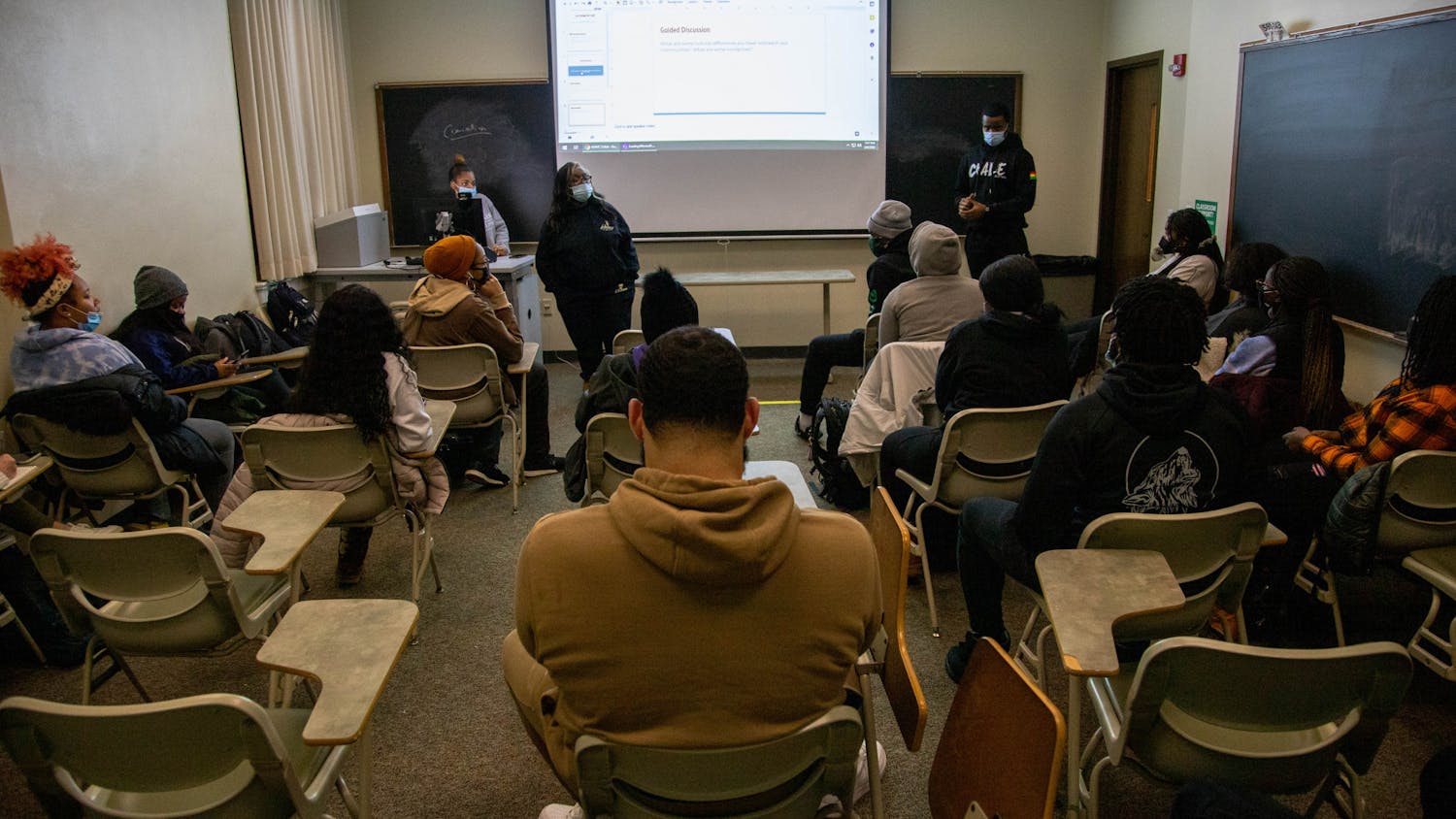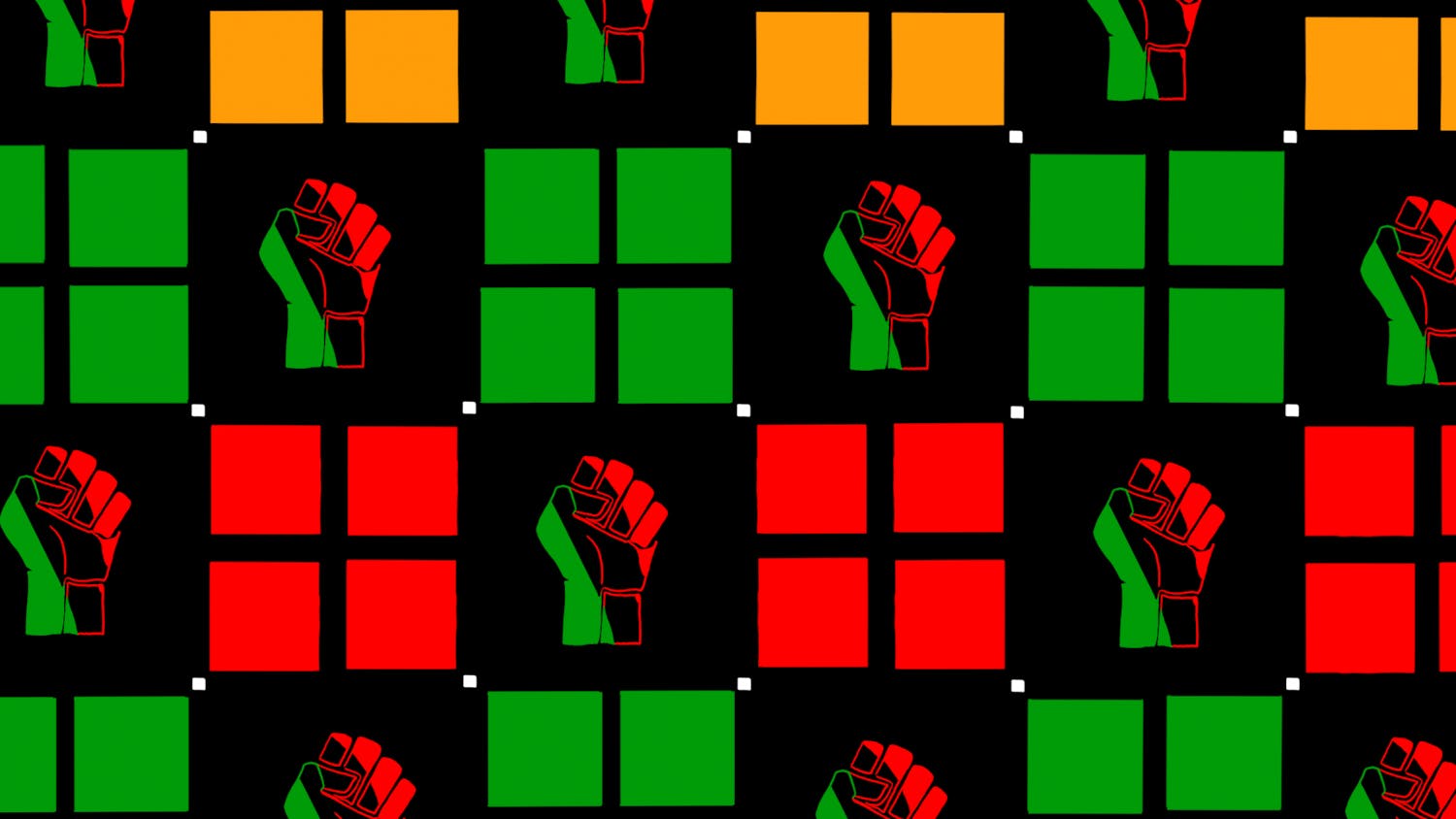February is Black History Month, and it’s being celebrated and acknowledged by Black students at Ohio University in different ways. Similarly, the month’s personal importance to students cannot be confined into one explanation.
What Black History Month means to Black students may be defined through their experiences and backgrounds. To Joi Foy, who went to a predominantly white middle and high school, the month of commemorating the accomplishments of Black people in the U.S. means celebrating representation.
“I think it’s really important to see people like yourself,” Foy, a freshman studying journalism, said. “So, within Black History Month, we’re able to see people that look like us and also celebrate those people for the things and the trademarks they’ve created for us. They paved the way for us to do the things that we do today.”
Black History Month was originally established as a week in 1926 by Carter G. Woodson, who is the founder of the Association for the Study of African American Life and History, or ASALH. Woodson founded the ASALH because he recognized the need for a platform dedicated to researching the in-depth and rich history of Black people in the U.S., according to the organization‘s website.
Woodson, according to the ASALH, was the son to parents who were enslaved and “understood how important gaining a proper education is when striving to secure and make the most out of one’s divine right of freedom.” Woodson went on to receive higher education and was the second African American to get a Ph.D. at Harvard University.
Other students recognize the rich history of Black History Month, like Chelsea Tano, who finds that Black History Month means more to her now than it did two years ago. When Tano, a sophomore studying psychology, started taking more African American studies classes for her minor, she began learning more about African history in the U.S. and in Africa. It was this exposure that made Black History Month more significant to her. Tano, however, does wish the month dedicated to Black history was longer.
According to the ASALH, a week in February was purposely chosen by Woodson because Abraham Lincoln’s and Frederick Douglass’ birthdays fit in the same week. In 1976, the week was increased to a month of celebration. As the values of celebrating Black history stayed the same during the expansion to a month, so did the component of annual themes.
Each year, a theme corresponds with Black History Month to showcase specific achievements in different areas of life. The theme for 2022 is health and wellness, according to the ASALH. This theme celebrates the advancements made by Black scholars and medical practitioners in Western medicine along with other forms of medicine and healing within the African Diaspora, such as midwives.
Midwives are health care providers who aid and care for pregnant people before, during and after childbirth as detailed by the National Museum of African American History and Culture in their recognition of birth workers during this year’s Black History Month.
The museum noted that although midwives have a strong presence today, their history dates back centuries ago. During the middle passage, the stage of the Atlantic Slave Trade when millions of Africans were forcibly removed and brought to the Americas, midwives brought their knowledge with them and trained others as the primary source of birth care throughout the country.
When more births started to take place in hospitals than at homes in the 1940s, the shift was met with high maternal mortality rates, and midwives were asked by state governments to create health protocols, according to the museum’s website. But the museum also explained that Black women are still three times more likely to die during pregnancy than white women in the U.S., which brings a necessity to birth workers helping avoid high pregnancy mortality rates among Black people.
The ASALH, in discussion about this year’s theme, said while there have been some steps made in the medical field to help Black pregnant people have safe childbirths, there remain barriers due to racism. This also applies to other sectors of health and wellbeing such as mental health.
Christopher Lawrence-White, a junior studying mechanical engineering and former contributor for The Post, said certain stereotypes of Black people make it difficult for them to seek mental health resources. For example, the stereotype that Black women are always confident and strong, often known as the “superwoman stereotype,” is one that is harmful, Lawrence-White said.
He said the stereotype may appear positive, but it strips away humanness from Black women. The superwomen stereotype can put pressure on Black women to always be the providers for themselves and to decline help from others, Lawrence-White said.
“It can be very damaging and reflects in a lot of people being depressed and blaming themselves,” Lawrence-White said. “Through a lot of different avenues, it ties into the importance of mental health and reaching out to therapists or people you can talk to.”

Another issue Lawrence-White and Foy view is the lack of discussion about mental health with others who are also Black. Foy believes this year’s theme of health and wellness can possibly bring awareness to this lack of attention.
“Black mental health is something that’s not talked about a lot within our community or also, just on a broader aspect, the whole world,” Foy said. “So, being able to sit down and say, ‘This needs to be highlighted. This is something as a community that we need to focus on more individually,’ but also understand that as our non-Black counterparts go through these things, Black people do also.”
There are ways for non-Black people to become more involved during Black History Month, and Lawrence-White feels one thing people can do is actively listen to Black people and other marginalized groups who are sharing their experiences, trying to educate or just existing.
Black student-led organizations at OU are hosting events all month to fit the theme of health and wellness. Ebony Minds, a Black women-led organization on campus, is hosting a line dancing event with the Athens Black Contemporary Dancers.
The ASALH and the health and wellness theme encourages balancing mental health with physical health, which includes dancing. Anyone is welcome to attend and learn line dances. The event will be hosted Tuesday at 6 p.m. at the Multicultural Center, room 219.
Black History Month and its corresponding themes share different lessons each year about the Black experience and accomplishments throughout the U.S. and its history. Its importance to people varies, and, for Tano, the month’s meaning is hard to describe.
“I’m so passionate about it,” Tano said. “I can’t even put it in words.”






